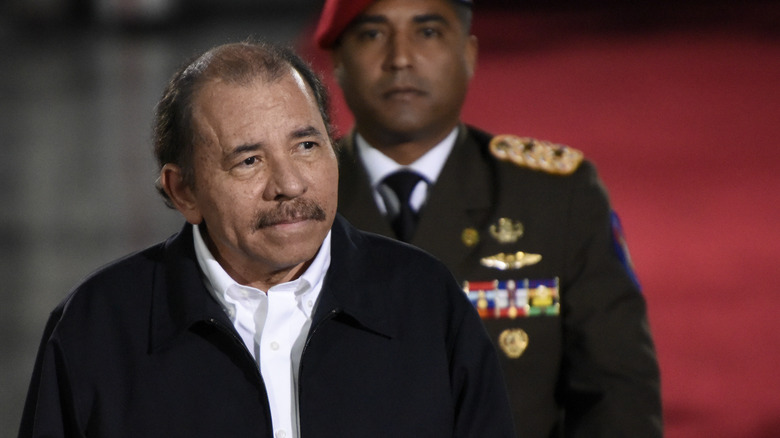Why Nicaragua's Ties To Russia May Be Hurting Its Sugar Exports
On Wednesday, July 21 the Biden Administration announced a move many believe is intended to punish Nicaragua and its leader, President Daniel Ortega, by targeting sugar exports (via Associated Press). This comes on the heels of widespread criticism of Ortega and the Nicaraguan government, including its ties to Russia. On June 17, the White House released a statement condemning the Ortega regime, titled "Holding the Nicaraguan Regime Accountable." In it, the administration calls out Nicaragua's relationship with Russia and corruption within the government, calling Ortega's most recent election victory "fraudulent."
The Associated Press explains that each year, the United States drafts a list of sugar import quotas for 39 countries. If a country imports more sugar than its quota permits, its shipments become subject to higher tariffs (via The Wall Street Journal). Nicaragua was allocated over 22,000 metric tons of sugar in 2022 but has been removed outright from next year's list. That means all Nicaraguan sugar exports to the U.S. in 2023 will be subjected to the standard tariffs.
Nicaraguan President Daniel Ortega has backed Putin
The Wall Street Journal reports that, in 2020, Nicaragua sent nearly two-thirds of its total exports to the United States, a value of roughly $3.5 billion. With the U.S. as its dominant trade partner, the cutting of sugar quotas poses a serious threat to Nicaragua's economy. The Associated Press adds that the sugar sector accounts for approximately 4% of Nicaragua's gross national product, providing jobs for around 150,000 people.
The decision to remove Nicaragua from the list is only the latest in a series of moves by the Biden Administration to put pressure on Nicaragua's president, Daniel Ortega. Other measures include excluding Nicaragua from the Summit of the Americas this past June, per the Wall Street Journal, as well as imposing sanctions on ENIMINAS, a state-owned mining company (via State.gov). The Journal elaborates that Ortega, as suggested in the White House statement, is widely considered an authoritarian leader, winning the presidency via a sham vote, and he has cultivated close ties to another perceived autocrat in Russia's Vladimir Putin. To this end, Ortega has defended Putin's invasion of Ukraine, and, according to an AP report from June 2022, even authorized Russian troops to train in Nicaragua.
The U.S. hopes that any measures against Nicaragua will force Ortega to take accountability for his actions and alliances, but only time will tell if the effort succeeds.

